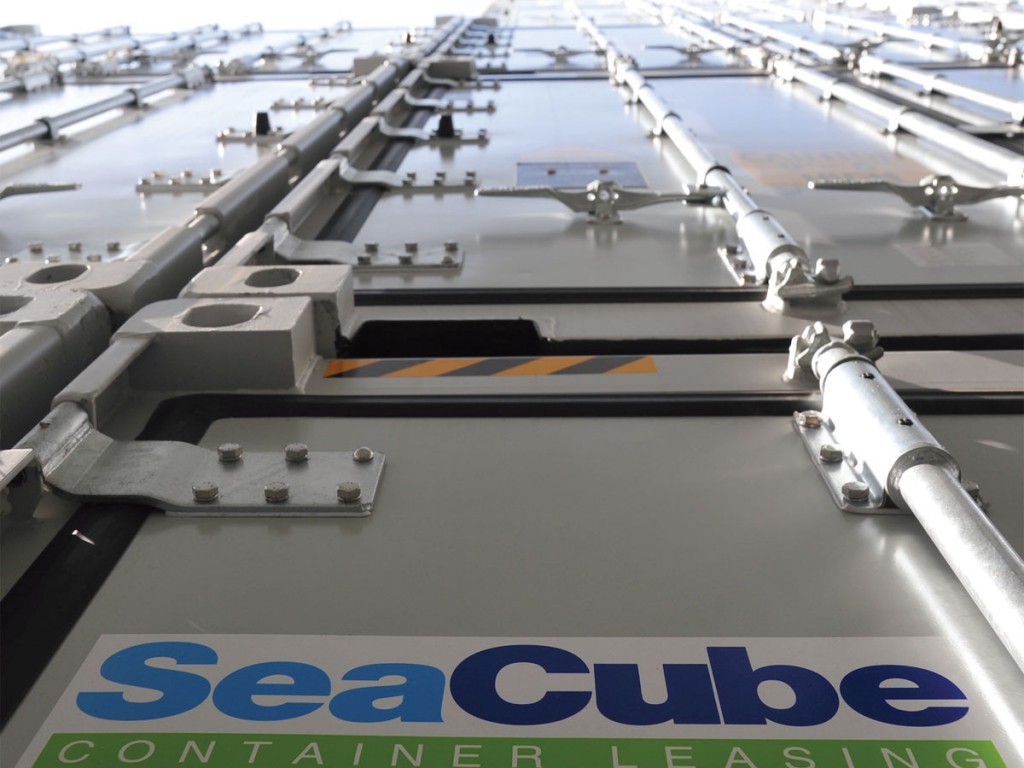SeaCube Containers LLC in recent years has emphasized the development of its refrigerated container leasing business. That skyrocketing business now represents 68% of the firm’s fleet asset investment.
Greg Tuthill, senior vice president and chief commercial officer, discussed this background and specific directions of SeaCube in an early-June interview with the American Journal of Transportation.

SeaCube is investing between $500 million and $700 million per year in new containers.
Tuthill said SeaCube’s investment in refrigerated containers has particularly escalated since Robert Sappio became the firm’s CEO in 2017.
This strategy reflects SeaCube’s global view of the strong future of refrigerated cargo. This is driven by global trends in food consumption and food outsourcing. Throughout the world, consumers interested in healthy diets are paying for fresh foods from around the globe to enjoy such fare throughout the calendar year.
Tuthill noted, for example, that California was once the sole source for U.S. consumers’ avocado production. Now avocados are imported from many countries, with reefer ocean containers being central to much of that trade.
Beyond fresh fruits and vegetables, fresh seafood is increasingly shipped on the high seas. This is in part driven by increased fish farming in many countries.

Technology The Key: SeaCube-Transicold Platform
With the increased business, SeaCube has stepped up its technological support.
Tuthill noted that SeaCube makes it the number one priority to meet the customers’ requirements and therefore purchases equipment, reefer machinery and technology solutions from various supplier partners.
That said, on April 19, SeaCube and Carrier Transicold announced a strategic refrigerated asset management systems platform engagement.
As a result, SeaCube will be the first intermodal equipment leasing company to incorporate Carrier’s Lynx Fleet solution into its fleet with an initial deployment of 2,000 PrimeLINE refrigerated container units.
A Transicold press release noted that the Lynx Fleet includes proprietary technology that monitors reefer unit performance and provides early warning actionable diagnostics and predictive analytics down to the level of the machine’s components. By using integrated sensor machine data feeds, Carrier’s Lynx Fleet system will provide much more detailed machine performance analysis capabilities compared to other telematics platforms.
“This digital engagement between SeaCube, a global leader in refrigerated equipment leasing and Carrier Transicold, will drive greater flexibility and data-rich intelligence reporting across the cold chain,” Transicold continued.
This rich intelligence ties in with SeaCube’s drive toward telematics as a standard within its reefer fleet.
The technology that SeaCube has invested in will also have a mixed fleet application and provide detailed information on the status of each customer’s containers; regardless of the reefer machine manufacturer.
This provides “a huge advantage” to SeaCube customers, Tuthill said, while also enabling SeaCube to better manage its fleet investment for the purpose of having full transparency of reefer machine performance with actionable data feeds that will compress cycle times for the equipment off-hire to on-hire process.
Carrier indicated its Lynx Fleet will offer prognostics and data analytics with features that provide differentiation such as:
- Improved fleet uptime through unit health analytics and prognostics using Carrier-unique features with proprietary technology including machine sensor protocols.
- Reduced operational costs and maintenance and repair expenses as result of optimizing performance with preventative maintenance platform features.
- Incremental value through lower cargo spoilage and possible reduced insurance costs.





